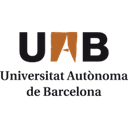Learn to make cultural venues and productions accessible to all, focusing on persons with disabilities and inclusive practices.
Learn to make cultural venues and productions accessible to all, focusing on persons with disabilities and inclusive practices.
This course offers a comprehensive exploration of accessibility in scenic arts, covering everything from venue accessibility to implementing various access services. Learn about inclusive practices, international legislation, and practical steps to make cultural events accessible to all, especially persons with disabilities. Gain insights into managing accessibility, communicating effectively, and creating inclusive cultural experiences. Perfect for venue managers, event organizers, and anyone interested in making the arts more accessible.
4.7
(31 ratings)
3,204 already enrolled
Instructors:
English
What you'll learn
Understand the concepts of inclusion and accessibility in the context of scenic arts
Learn about international and European legislation on accessibility
Gain knowledge on making indoor and outdoor venues accessible
Master various access services including audio description, captioning, and sign language interpreting
Develop skills in implementing access facilities for cultural events
Learn effective communication strategies for promoting accessibility
Skills you'll gain
This course includes:
5.15 Hours PreRecorded video
6 assignments
Access on Mobile, Tablet, Desktop
FullTime access
Shareable certificate
Closed caption
Get a Completion Certificate
Share your certificate with prospective employers and your professional network on LinkedIn.
Created by
Provided by

Top companies offer this course to their employees
Top companies provide this course to enhance their employees' skills, ensuring they excel in handling complex projects and drive organizational success.





There are 8 modules in this course
This comprehensive course on accessibility to scenic arts covers a wide range of topics essential for making cultural venues and productions inclusive for all audiences, especially persons with disabilities. The curriculum is structured into eight modules, starting with an introduction to inclusion and accessibility concepts, then delving into venue accessibility, various access services, implementation strategies, communication and dissemination techniques, and management of accessibility in cultural settings. Participants will learn about international legislation, practical steps for improving venue accessibility, different types of access services such as audio description and sign language interpreting, and how to effectively manage and promote accessibility initiatives. The course combines theoretical knowledge with practical applications, featuring case studies, expert interviews, and hands-on assignments to ensure a thorough understanding of creating inclusive cultural experiences.
INTRODUCTION
Module 1 · 1 Hours to complete
GENERAL INTRODUCTION TO INCLUSION
Module 2 · 1 Hours to complete
VENUE ACCESSIBILITY
Module 3 · 1 Hours to complete
ACCESS SERVICES - CONCEPTS
Module 4 · 1 Hours to complete
IMPLEMENTING ACCESS FACILITIES AT ARTS EVENTS TO ENSURE INCLUSION FOR ALL
Module 5 · 6 Hours to complete
COMMUNICATION AND DISSEMINATION
Module 6 · 4 Hours to complete
MANAGEMENT
Module 7 · 2 Hours to complete
Final Assessment & Debriefing (optional activity)
Module 8 · 2 Hours to complete
Fee Structure
Payment options
Financial Aid
Instructors
Expert in Audiovisual Translation and Media Accessibility
Anna Matamala holds a BA in Translation from the Universitat Autònoma de Barcelona (UAB) and a PhD in Applied Linguistics from Pompeu Fabra University (UPF). She is the main researcher at TransMedia Catalonia, where she has participated in and led numerous projects focused on audiovisual translation and media accessibility. Her extensive publication record includes articles in high-impact journals.
Titular de universidad
Pilar Orero is a Professor at the Department of Translation and Interpreting at the Universitat Autònoma de Barcelona (UAB) and a key figure in the TransMedia Catalonia Lab. Specializing in Media Accessibility, she has authored numerous books and articles and led various EU-funded research projects, including TRACTION, MEDIAVERSE, MILE, and GREENSCENT. Her work focuses on immersive accessibility and contributes to global efforts in standardization, including participation in international committees on audiovisual media accessibility. Pilar’s research supports the United Nations Sustainable Development Goals, particularly SDGs 4 (Quality Education) and 16 (Peace, Justice, and Strong Institutions), and she currently leads the MSCA ClearClimate project (2023-2028).
Testimonials
Testimonials and success stories are a testament to the quality of this program and its impact on your career and learning journey. Be the first to help others make an informed decision by sharing your review of the course.
Frequently asked questions
Below are some of the most commonly asked questions about this course. We aim to provide clear and concise answers to help you better understand the course content, structure, and any other relevant information. If you have any additional questions or if your question is not listed here, please don't hesitate to reach out to our support team for further assistance.





